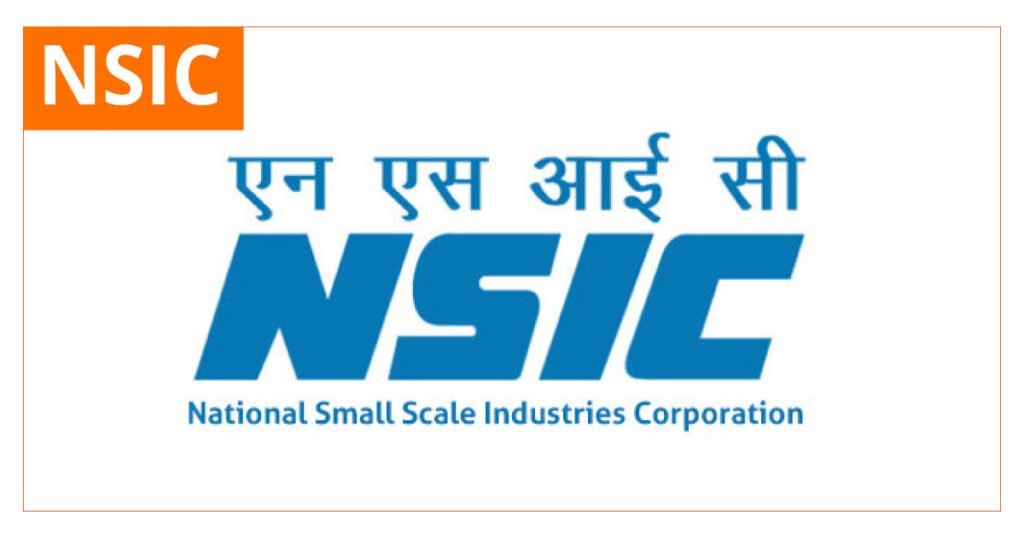National Small Industries Corporation (NSIC) offers support and works for the growth and development of Micro, Small, and Medium Enterprises (MSMEs) nationwide. NSIC works under the Ministry of Micro, Small, and Medium Enterprises (MoMSME) for the promotion of these enterprises.
NSIC offers Credit support to MSMEs with the help of three major credit facilities:
- Raw Material Assistance (RMA) against Bank Guarantee
- Credit Facilitation through Bank
- Bill Discounting

Meaning of Bill Discounting
Bill discounting is a short-term finance arrangement where the seller receives its amounts outstanding in advance (before the due date) from a bank or other financial institutions such as NBFCs, after deducting interest and other charges as a discount. At the end of the credit period, the seller needs to repay the bank.
Interest Rate offered by Banks under NSIC Scheme
With the objective to meet the credit needs of MSME units, the NSIC has signed an MOU (Memorandum of Understanding) with leading nationalized and private sector banks and non-banking financial institutions. Under this pivotal deal with the bank, NSIC enables MSME units to avail the credit support from the banks to successfully operate and manage their business venture.
The interest rates levied on MSME loan varies from bank to bank, banks typically charge floating interest rates. Certain significant sectors play a crucial role in deciding the interest rates, including the credibility of the venture and present and future viability and stability.
NSIC works with its wide network of branch offices and technical centers spread across the country. Its range of services includes financial assistance, core training, and incubation. NSIC offers integrated support services under finance, technology, marketing, and support services. The corporation also focuses on providing machinery on hire purchase basis and marketing in exports.
Salient features of the NSIC Bill discounting scheme
NSIC charges nominal interest (up to the usance period) and additional interest if the payment is not received within the usance period.
Discount or Interest Rate up to credit or usance period:
| Normal Interest (% per annum) | Micro (%) | Small (%) | Medium (%) |
|---|---|---|---|
| For MSME units having SME 1 Rating | 6.5 | 7 | 8 |
| For MSME units having SME 2 Rating | 7 | 7.5 | 8 |
| Other Units | 7.5 | 8 | 8 |
An additional rate of interest at the rate of 1.25% per quarter after the credit or usance period will be charged if the amount is not paid within that period.
This additional interest will be over and above the normal interest specified in the table above.
For all proposals sanctioned under this scheme, the following processing fee will be applicable:
| Processing Fees (% per annum) | Micro (%) | Small (%) | Medium (%) |
|---|---|---|---|
| Fresh sanction | 1 | 1 | 1 |
| Renewals | 0.5 | 1 | 1 |
NSIC will also require security in the form of a bank or personal guarantee before it disburses the funds.
Bank guarantees must be equivalent to the value of assistance and issued by approved banks. The personal guarantee should include the guarantee of the proprietor, partner of firms or directors of the company.
Eligibility Criteria
- MSMEs falling under the turnover ranging between Rs. 5 crores or more and up to Rs. 250 crore
- Enterprise in successful operation for the last 3 years
- Under collateral for cash credit loans, banks require comprehensive details of the business and its feasibility
- Past loan repayment record, if applicable
- Good CIBIL score
Documents
- Photographs of each proprietor, partner or director.
- Statutory Certificates.
- Statement of personal assets and liabilities (self-attested).
- Copy of board resolution stating to deal with NSIC for financial assistance required.
- a. Last year’s audited financial statements.
b. Provisional/current financial statements.
c. Projected financial statements. - Sanction letter issued by the bank for the credit limit.
How to obtain NSIC Bill discounting facility?
- Amount of assistance/funds needed.
- Background details of the applicant (e.g. constitution, year of establishment).
- Statutory registration details (e.g. GST, PAN).
- Details of sister concern, if any.
- Details of proprietor, partners or director.
- Nature of business (e.g. product manufactured or services rendered).
- Details of order received from eligible seller unit.
- Security details (e.g. bank or personal guarantee
FAQs
What is the difference between NSIC and MSME?
National Small Industries Corporation (NSIC), is a certified enterprise of the Government of India that works under the Ministry of Micro, Small, and Medium Enterprises (MoMSME) that promotes the growth of Micro, Small, and Medium Enterprises (MSMEs) in India. Whereas, MSME is itself a sector that comprises numerous Micro, Small, and Medium Enterprises.
What is an NSIC certificate?
NSIC certificate or registration helps to promote MSMEs by offering Single Point Registration for Government purchase and credit rating scheme for small industries.
